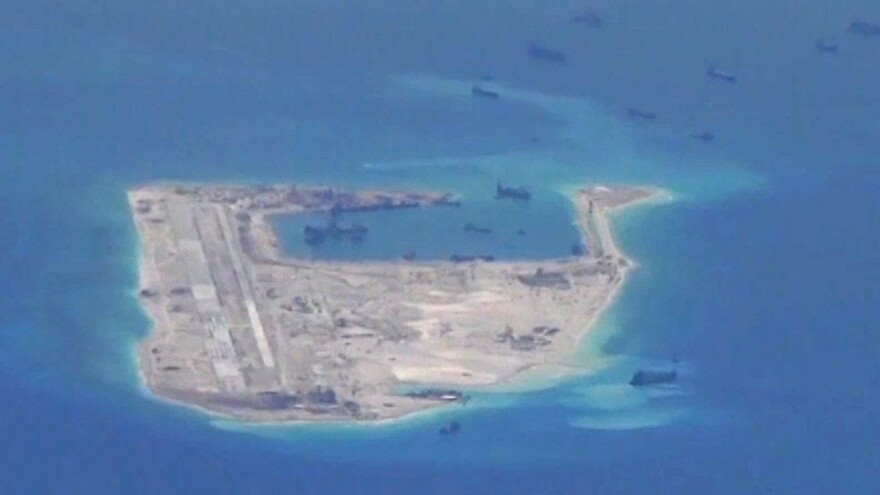Complaining that an American B-52 bomber flew near disputed islands in the South China Sea, China's defense ministry calls the flight "a serious military provocation" that put Chinese military personnel on high alert.
The plane was flying close to the contested Spratly Islands, parts of which are known as Nansha in China and Kalayaan in the Philippines. The U.S. says it's investigating the matter.
The U.S. jet was warned to leave the area, China says, with a report from state media saying the defense ministry "demanded the United States immediately adopt measures to prevent such dangerous actions."
From Beijing, NPR's Anthony Kuhn reports:
"The incident occurred on Dec. 10, near Cuarteron Reef in the Spratly Islands. The reef is claimed by both China and the Philippines, but China controls it and has reclaimed land on it.
"The Wall Street Journal quotes Pentagon spokesman Cmdr. Bill Urban as saying that the B-52 was not on a so-called freedom of navigation operation, intended to assert the plane's right to transit the area.
"The report suggested that the plane may have had to fly near the reef to avoid bad weather."
Copyright 2021 NPR. To see more, visit https://www.npr.org.



